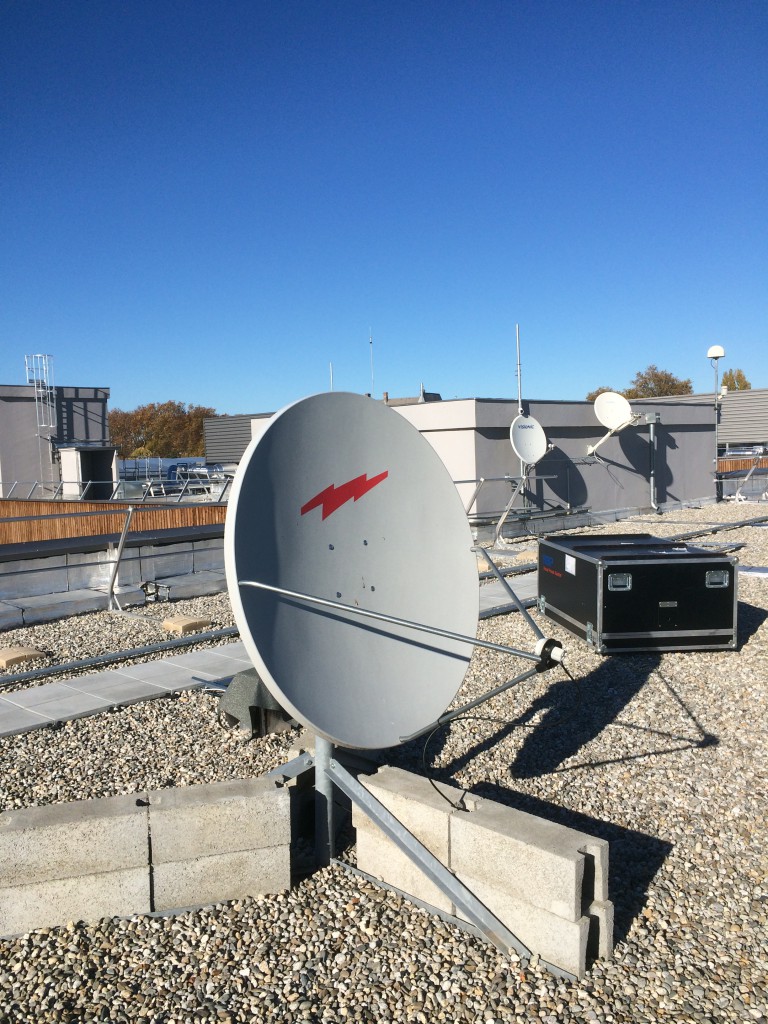Question: what kind of testbed requires
- 4 Ku-band antennas with embedded IP-LNB
- 300 kg of concrete ballast
- 5 Ethernet switches
- And a bunch of virtual machines ?
Stay tuned to discover the answer

You probably read about SDR activities in our SatCom lab. Thanks to the variety of SDR devices we have (NI USRP 2920, NI USRP 2950R and NI PXIe 5644R) we are able to propose experimental projects to the students (such as this one, or that one or that other one).
Today we made a step towards introducing SDR in the classroom. We received 7 NI USRP 2900. These devices are the first building blocks of our new set of lectures about Software Defined Radio for Space Applications.
Yes, I have to admit, we have a significant backlog and contributions to this blog are lagging badly …
On September 15 (almost one month ago), we held our yearly SCS (Space Communication Systems) diner where the new students meet former students.
Our favourite place for such meetings is the Quasimodo pizzeria in Toulouse … a place that I can’t refrain from recommending. Fresh food, nice atmosphere: all the required ingredients to turn a SCS diner into a success.
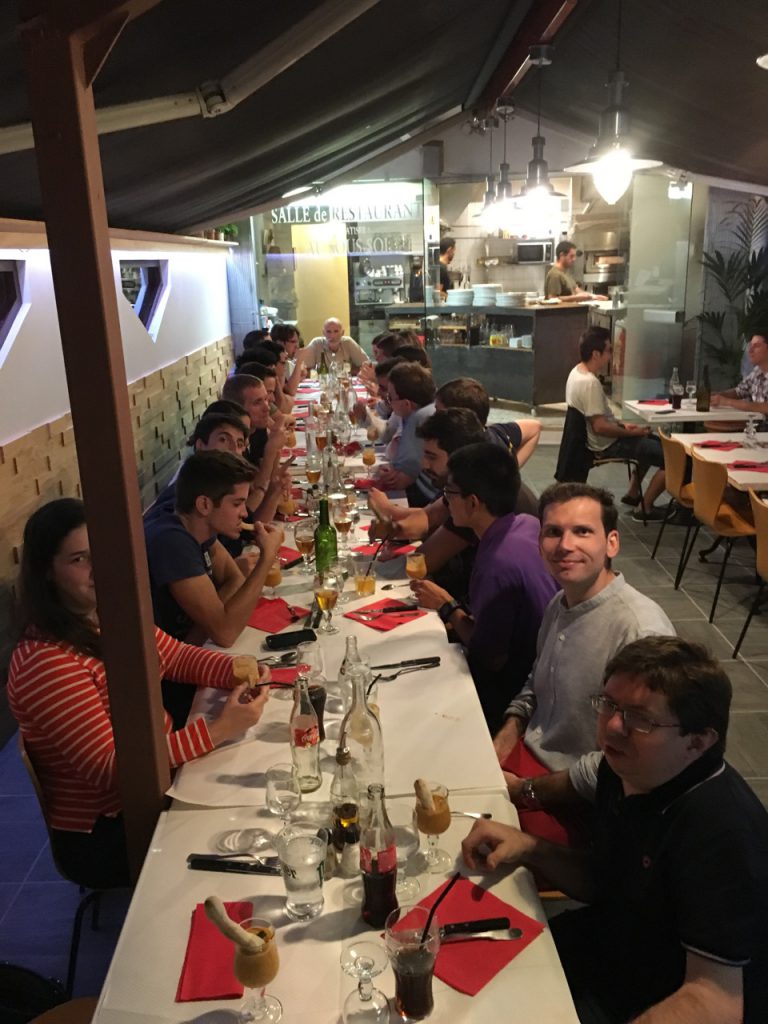
Meet Luciano Barros Cardoso da Silva, PhD student with Télécom Bretagne
Yesterday was a hectic day with the official opening of our SatCom experimental room (organised together with the opening of the neighbouring RALF room from our friends and colleagues of ISAE).
We had guests from the French Space agency, the Industry and academics.
Thank you to the colleagues (Geneviève), students (Antoine, Pablo, Thibaut) and PhD students (Joan, Vicente) who contributed in preparing & animating this event. They also helped in making sure everything was back in place afterwards.
Indeed, this morning we resumed normal operations and the sun rises (unsurprisingly) on the roof of our lab.
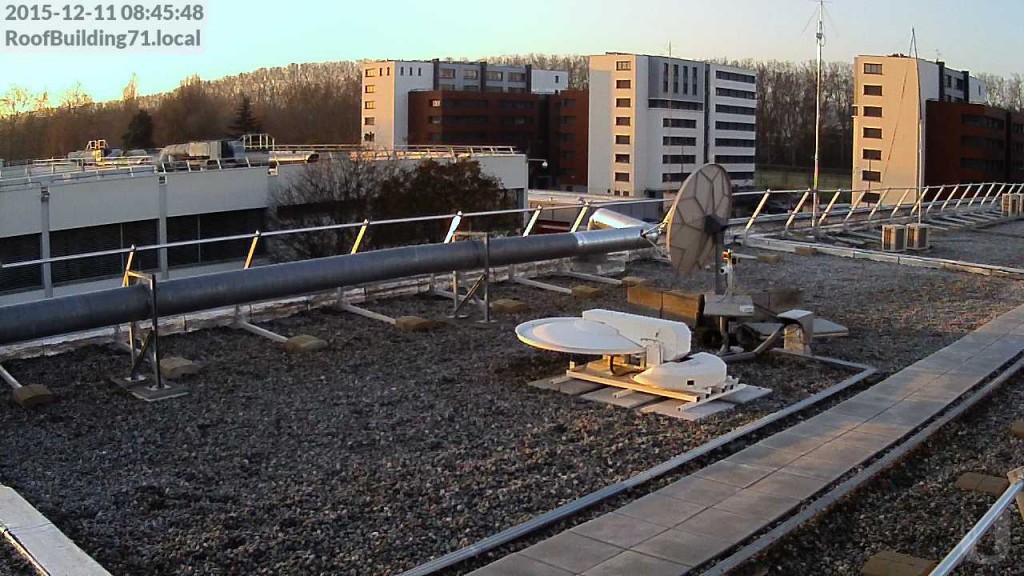
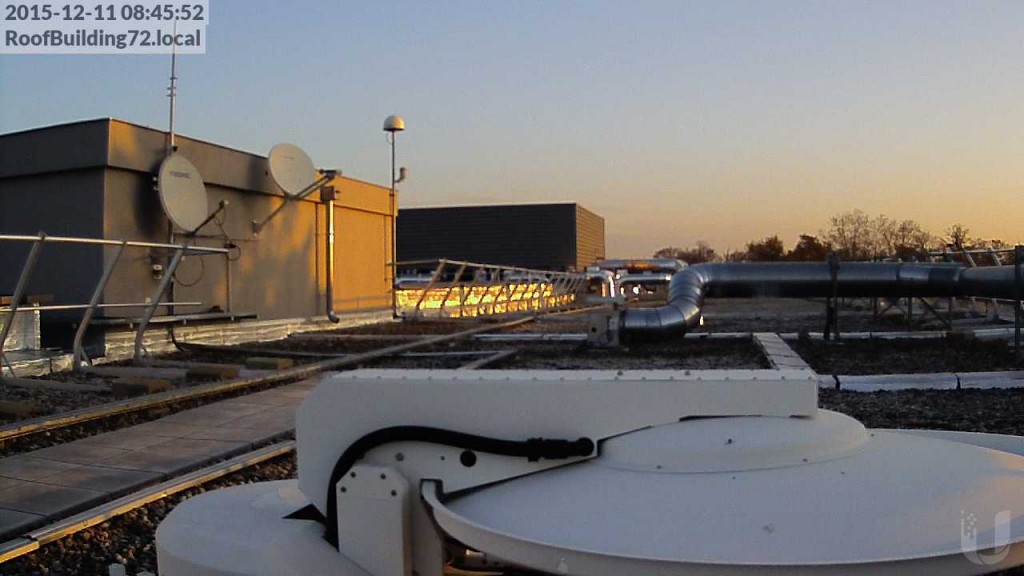
At this time of the year, a lot of people visit Xmas markets.
We do visit the Aussaguel’s teleport for a change.
A lot of thank you-s to Hervé, our host, for making it possible.
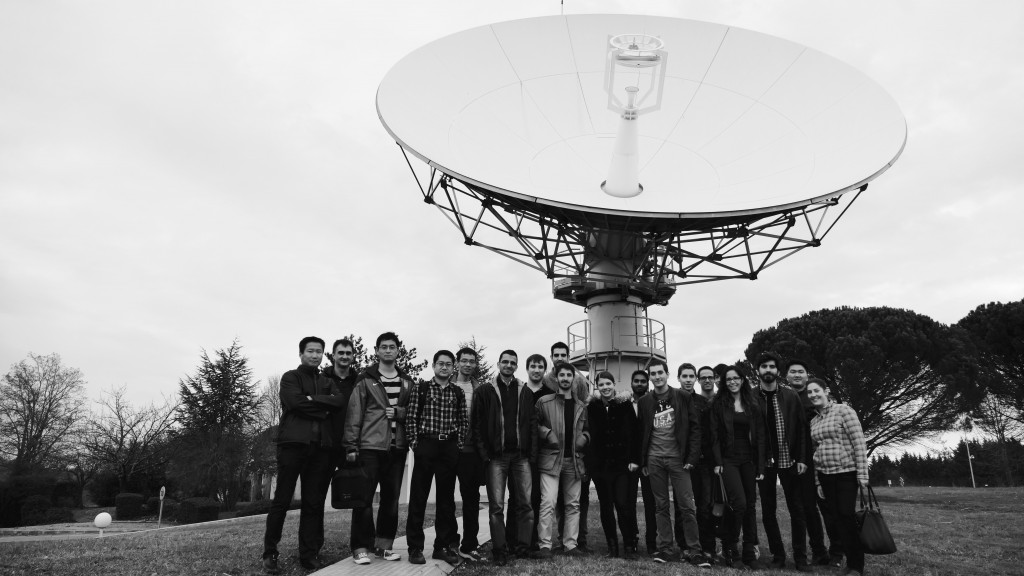
In earlier posts, we discussed about our geostationary station facilities.
Now it is time to take care of the low earth orbit (LEO) station that is operated together with ISAE.
With Jérémie C., my colleague from ISAE, we spent a couple of hours re-aligning the antennas of the LEO station. Some refurbishing work on the building roof called urgently for a re-alignment.
It basically boils down to the following steps:
Now, keep in mind that the antenna aperture is large enough (> 30°) to accommodate for rough (i.e. handed compass) alignment.
Enough text, here are some snapshots !
This is an official disclaimer: our satcom lab is now up and running.
At 18:00 (UTC+1), we have finalised the installation of all our antennas on the building roof. It all started in the morning with the preparation of the roof for hosting the auto-pointing antenna kindly donated by the French Space Agency (thank you !). And also a big thank you to the logistics department of ISAE for giving us a helpful hand on that.
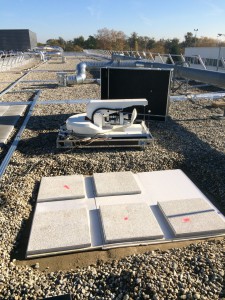
The afternoon was busy with lectures, so 5PM was the earliest slot for resuming antenna setup operations. At 6PM we were done and ready for testing.
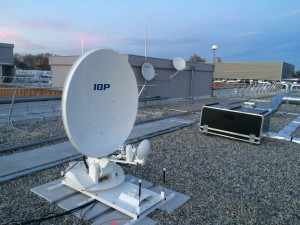
It turned out that everything was running smooth and ZDF was on the screen directly received from Hotbird 13 (this has still to be verified though … it’s pretty crowed over there and every satellite is keen on broadcasting ZDF)
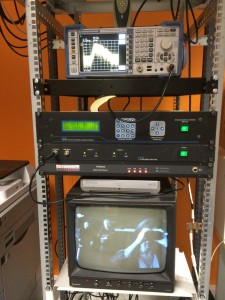
A last look through our IP cam (I still have to figure out how to turn IR “on”) and it is a goof time for stowing the antenna and enjoying the week-end
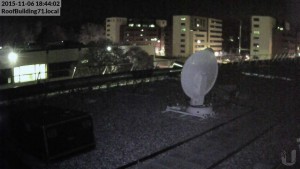
Today (4th of November) was a hot day. Especially on the roof of our offices in Toulouse.
Time for some videoconferencing with 1st year students from Télécom Bretagne located in Brest. To make it a little bit spicier, I wanted to set up a temporary satellite access and have the videoconference go through it.
Mischief managed !
Last July we have moved to another building … so did the lab.
Our new lab room features more space and a short access to the roof … call it antennas heaven. And we’re almost done with the deployment of the antennas : done with the 1.2 m Ku band, done with the 0.6 m Ku band, done with the 0.75 m Ka band for Internet access !
The one missing (the big box on the picture below) is the 1.2 m auto-pointing Ku antenna. Expect news soon.
